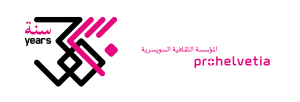Flex the format: the potential future of institutions in Beirut
Rana El Nemr
Marie Muracciole
Panel Old Location
October 31, 2018 8:00 pm
Over the last twenty years, the art world in the middle east has undergone a radical shift. Institutions of a whole range have proliferated – artist-run spaces, museums, biennials, research, and art educational programs – all of which have drawn an international network of artists, curators, and other practitioners.
These institutions, like all institutions today, operate under the material conditions brought about by late capitalism and neoliberal policies. They are faced with the quandaries of gentrification, near-absolute commodification of artwork, absence of state funding and reliance on private sponsorship, censorship, the rampancy of human rights discourse, and the precariousness of labor. Under such circumstances, and in light of Beirut Art Center’s imminent move in early 2019, it is time to consider the potential future of institutions in Beirut, while also considering institutional models globally.
This series of panel discussions will begin to deliberate on how to flex the format of institutions, i.e. their increasingly rigid programs, bureaucratic processes, and mode of operation. How can we rethink institutions beyond their infrastructure? What kind of adaptable format can we imagine could be up to the task of responding to the specific needs of the time – and what are those needs? It will equally be necessary to consider the ethical practices of institutions and their most prominent players, and what is yet to be done in such a deregulated field.
Distributed into three sessions which successively focus on the past, present, and future of institutions in Beirut, the first of these will ask: what can be gleaned from the so-called “proto-institutional” moment of the 1990s and its key players? The session following will focus on the question of the institution as a site for the production of a national identity, and its reliance for humanitarian aid and the last of these will look to the future potential of institutions under our current political climate and its constraints.
Panel discussion with Giovanni Carmine, Rana Elnemr, and Marie Muracciole, and moderated by Natasha Gasparian. With the presence of active members from Beirut Art Center’s public who will also be attending one of the three workshop sessions.
Giovanni Carmine is a curator and art critic. He studied art history, Italian literature, and history of cinema between the universities of Lausanne and Zurich (1995-2004). He worked at the Kunstraum Walcheturm in Zurich. Since 2007, he is the director of the Kunst Halle Sankt Gallen (www.k9000.ch), where he has curated more than 50 exhibitions. In 2013, he curated the swiss pavilion at the Venice biennale with a show by Valentin Carron. He also has extensive practice as an independent curator and writer.in 2001 he was awarded with the Swiss art award for curatorial excellence. He currently lives and works between Zurich and st. Gallen.
Rana Elnemr is a visual artist based and working with Cairo’s art scene and larger urban environment. Her artistic practice moves from formalist explorations of photography as a medium to genre-bending visual essays of her surroundings in Egypt. Her practice is anchored in questioning what it means to live and experience the city, through recording, describing and reflecting on this experience via photography, film, texts, and conversations. Rana’s artistic process incorporates formal image-making techniques with contemporary artistic practices and it strives to integrate various forms of collaborations in different constellations, such as trans-disciplinary collaborations and alternative pedagogical practices among many others. She was one of the founders of the contemporary image collective (CIC) in 2004 and remains an active board member.
Natasha Gasparian is a Beirut-based writer and art historian. She is currently pursuing her master’s degree in art history and curating at the American University of Beirut. She works as a writer for Agial Art Gallery and Saleh Barakat Gallery, where she has also curated several exhibitions, including Ziad Abillama’s the twisted wing of the airplane king and Hiba Kalache’s lemonade everything was so infinite. She is also involved in other projects, including the first edition of perspective for the Saradar collection. in both 2017 and 2018, she received the Maria Geagea Arida award from Apeal.
Marie Muracciole is an art critic, writer, and independent curator based in Beirut and Paris. since February 2014 she has been the head of Beirut art center. Her latest publications include: lights, camera, movement, film praxis in the work of Zineb Sedira in Zineb Sedira (Sharjah foundation), 2018, transports (Prière De Toucher) in Pierre-lin Renié, D’autres Jours / on other days, 2017, contrecourants: à propos d’allan sekula et d’aerospace, in Jeux Sérieux, (head), 2015, something new about plants, genealogy tree, in Yto Barrada (Jpringier), 2013; a love story, transportations, in Amar Kanwar: evidence (foto museum Winterthur/Steidl), 2012; memory’s body. “retrospective” by Xavier le Roy, in Texte Zur Kunst, 2011/12; it is your first mirage Sophie, on guy de cointet, Texte Zur Kunst n°82, 2011; tomorrow never knows, peter roehr, in 20/27 n°5, 2010. She is the French editor of écrits sur la photographie, allan sekula, éditions de l’ensba, paris, 2013, and photography at work: allan sekula, 2017, Beirut Art Center.
Supported by

